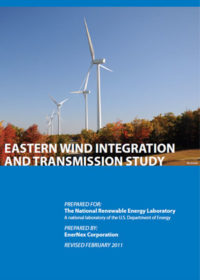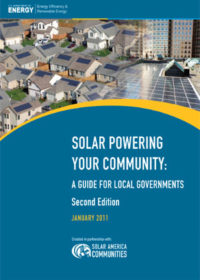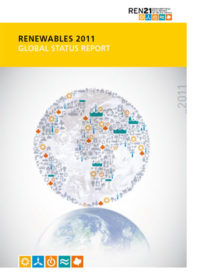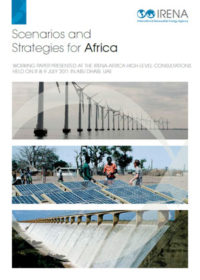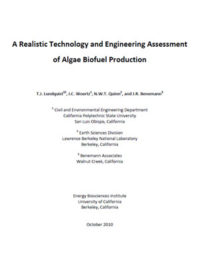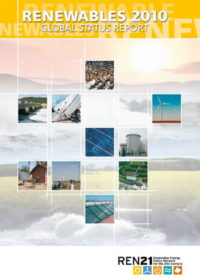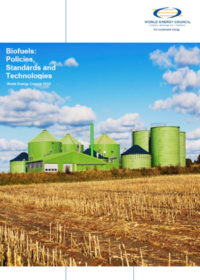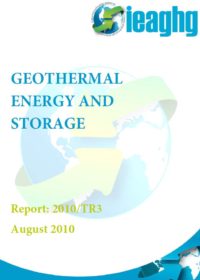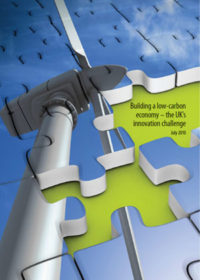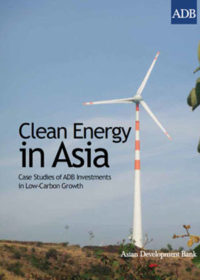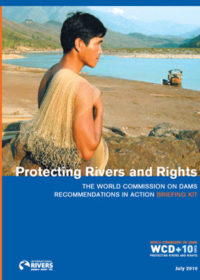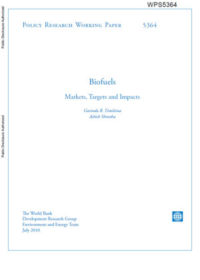Resources
Publications
Our publications, reports and research library hosts over 500 specialist reports and research papers on all topics associated with CCS.
View our Publication Library Disclaimer.
Filter by
This revised edition describes the National Renewable Energy Laboratory’s study that spanned over two years. The study team began by modeling United States wind resources in a large part of the Eastern Interconnection and finished by conducting a detailed wind integration study and top-down transmission analysis. The study resulted in information that can be used to guide future work. A number of other studies have already examined similar wind integration issues, but the breadth and depth of the analysis in EWITS is unique. EWITS builds on the work of previous integration studies, which looked at considerably smaller geographic footprints, focused almost exclusively on wind integration, and did not include transmission. EWITS took the next step by expanding the study area and including conceptual transmission overlays.
Disclaimer
The content within the Global CCS Institute Publications, Reports and Research Library is provided for information purposes only. We make every effort and take reasonable care to keep the content of this section up-to-date and error-free. However, we make no claim as to its accuracy, currency or reliability.
Content and material featured within this section of our website includes reports and research published by third parties. The content and material may include opinions and recommendations of third parties that do not reflect those held by the Global CCS Institute.
Solar powering your community: a guide for local governments
1st January 2011
Topic(s): Domestic policy, Policy law and regulation, Public engagement, Renewables, Solar energy
This guide can help stimulate ideas or provide a framework for a comprehensive solar plan for a community. Each section is divided into topic areas - typically within the jurisdiction of local governments - that are integral in creating and supporting local solar markets. Each topic area includes:
- An introduction that describes the policy or program and states its purpose
- Information on benefits of implementing the policy or program
- Tips and options for designing and implementing the policy or program
- Examples that highlight experiences from communities that have successfully implemented the policy or program; and additional reports, references, and tools that can offer more information on the topic.
DOE recognizes that there is no one path to solar market development, so this guide introduces a range of policy and program options that can help a community build a sustainable solar infrastructure.
This second edition of the guide was updated to include new market developments and innovations for advancing local solar markets that have emerged since the first edition was released in 2009.
Disclaimer
The content within the Global CCS Institute Publications, Reports and Research Library is provided for information purposes only. We make every effort and take reasonable care to keep the content of this section up-to-date and error-free. However, we make no claim as to its accuracy, currency or reliability.
Content and material featured within this section of our website includes reports and research published by third parties. The content and material may include opinions and recommendations of third parties that do not reflect those held by the Global CCS Institute.
Renewables 2011 global status report
1st January 2011
Topic(s): Economics, Global Status Report, Policy law and regulation, Renewables
Changes in renewable energy markets, investments, industries, and policies have been so rapid in recent years that perceptions of the status of renewable energy can lag years behind the reality. This report captures that reality and provides a unique overview of renewable energy worldwide as of early 2011. The report covers both current status and key trends; by design, it does not provide analysis or forecast the future.
Disclaimer
The content within the Global CCS Institute Publications, Reports and Research Library is provided for information purposes only. We make every effort and take reasonable care to keep the content of this section up-to-date and error-free. However, we make no claim as to its accuracy, currency or reliability.
Content and material featured within this section of our website includes reports and research published by third parties. The content and material may include opinions and recommendations of third parties that do not reflect those held by the Global CCS Institute.
Scenarios and strategies for Africa: working paper presented at the IRENA-Africa high-level consultations held on 8 & 9 July 2011 in Abu Dhabi, UAE
1st January 2011
Topic(s): Domestic policy, Renewables
This working paper outlines the current state of knowledge that will serve as a basis for the 'Scenarios and Strategies for Africa' project. The goal of this project is to prepare in-depth analysis and use models and scenarios to support and feed into national renewables readiness assessments. The project will focus on innovation and technology issues for 2035, with an outlook to 2050. Key questions are addressed in individual chapters.
Disclaimer
The content within the Global CCS Institute Publications, Reports and Research Library is provided for information purposes only. We make every effort and take reasonable care to keep the content of this section up-to-date and error-free. However, we make no claim as to its accuracy, currency or reliability.
Content and material featured within this section of our website includes reports and research published by third parties. The content and material may include opinions and recommendations of third parties that do not reflect those held by the Global CCS Institute.
A realistic technology and engineering assessment of algae biofuel production
1st October 2010
Topic(s): Biofuels / Bioenergy, Engineering and project delivery, Renewables
This Energy Biosciences Institute report assesses the economics of microalgae biofuels production through an analysis of five production scenarios. These scenarios, or cases, are based on technologies that currently exist or are expected to become available in the near-term, including raceway ponds for microalgae cultivation, bioflocculation for algae harvesting, and hexane for extraction of algae oil. Process flow diagrams, facility site layouts, and estimates for the capital and operations costs of each case were developed de novo. This report also reviews current and developing microalgae biofuel technologies for both oil and biogas production, provides an initial assessment of the US and California resource potential for microalgae biofuels, and recommends specific R&D efforts to advance the feasibility of large-scale algae biofuel production.
Disclaimer
The content within the Global CCS Institute Publications, Reports and Research Library is provided for information purposes only. We make every effort and take reasonable care to keep the content of this section up-to-date and error-free. However, we make no claim as to its accuracy, currency or reliability.
Content and material featured within this section of our website includes reports and research published by third parties. The content and material may include opinions and recommendations of third parties that do not reflect those held by the Global CCS Institute.
Renewables 2010 global status report
1st September 2010
Topic(s): Domestic policy, Economics, Geothermal energy, Global Status Report, Hydroelectricity, Marine energy, Policy law and regulation, Renewables, Solar energy, Wind energy
Changes in renewable energy markets, investments, industries, and policies have been so rapid in recent years that perceptions of the status of renewable energy can lag years behind the reality. This report captures that reality and provides a unique overview of renewable energy worldwide as of early 2010. The report covers both current status and key trends. By design, the report does not provide analysis, discuss current issues, or forecast the future.
Disclaimer
The content within the Global CCS Institute Publications, Reports and Research Library is provided for information purposes only. We make every effort and take reasonable care to keep the content of this section up-to-date and error-free. However, we make no claim as to its accuracy, currency or reliability.
Content and material featured within this section of our website includes reports and research published by third parties. The content and material may include opinions and recommendations of third parties that do not reflect those held by the Global CCS Institute.
Biofuels: policies, standards and technologies
1st September 2010
Topic(s): Biofuels / Bioenergy, Engineering and project delivery, Policy law and regulation, Renewables
This World Energy Council report reviews the biofuels debate within the arena of an increasing global appetite for energy. The report presents a global picture but focuses on the Americas. Discussion covers issues related to the diversity of energy supply, standardisation of biofuels, trade policies, sustainability of biofuels production and use and other topical matters with the ultimate objective of promoting a better understanding of the basic fundamentals which will define the future of biofuels worldwide.
Disclaimer
The content within the Global CCS Institute Publications, Reports and Research Library is provided for information purposes only. We make every effort and take reasonable care to keep the content of this section up-to-date and error-free. However, we make no claim as to its accuracy, currency or reliability.
Content and material featured within this section of our website includes reports and research published by third parties. The content and material may include opinions and recommendations of third parties that do not reflect those held by the Global CCS Institute.
Geothermal energy and storage
3rd August 2010
Topic(s): Carbon capture use and storage (CCUS), CO2 storage, Geothermal energy, Renewables
The aim of the report is to establish what the possible conflicts and synergies are between the geological storage of carbon dioxide and geothermal energy.
Disclaimer
The content within the Global CCS Institute Publications, Reports and Research Library is provided for information purposes only. We make every effort and take reasonable care to keep the content of this section up-to-date and error-free. However, we make no claim as to its accuracy, currency or reliability.
Content and material featured within this section of our website includes reports and research published by third parties. The content and material may include opinions and recommendations of third parties that do not reflect those held by the Global CCS Institute.
Building a low carbon economy: the UK’s innovation challenge
19th July 2010
Topic(s): Carbon capture use and storage (CCUS), Economics, Energy efficiency, Marine energy, Nuclear fission, Offshore wind, Policy law and regulation, Renewables, Wind energy
This report considers the effectiveness of current policy measures and institutional arrangements to deliver the technologies required to meet the UK’s 2050 emissions target.
Disclaimer
The content within the Global CCS Institute Publications, Reports and Research Library is provided for information purposes only. We make every effort and take reasonable care to keep the content of this section up-to-date and error-free. However, we make no claim as to its accuracy, currency or reliability.
Content and material featured within this section of our website includes reports and research published by third parties. The content and material may include opinions and recommendations of third parties that do not reflect those held by the Global CCS Institute.
Clean energy in Asia: case studies of ADB investments in low-carbon growth
5th July 2010
Topic(s): Project financing, Renewables
This publication features ten stories from clean energy projects implemented in six Asian countries. It describes the Asian Development Bank’s efforts to change the face of energy lending into a cleaner and more sustainable route toward energy security and low-carbon growth. The case studies show how developing Asia is contributing to the global effort to identify and implement solutions to combat climate change.
Disclaimer
The content within the Global CCS Institute Publications, Reports and Research Library is provided for information purposes only. We make every effort and take reasonable care to keep the content of this section up-to-date and error-free. However, we make no claim as to its accuracy, currency or reliability.
Content and material featured within this section of our website includes reports and research published by third parties. The content and material may include opinions and recommendations of third parties that do not reflect those held by the Global CCS Institute.
Protecting rivers and rights: the World Commission on Dams recommendations in action briefing kit
1st July 2010
Topic(s): Hydroelectricity, Renewables
The World Commission on Dams (WCD) resulted in guidelines for large dams to protect the rights of river-dependent communities. Ten years later, International Rivers published this briefing kit that provides concrete examples of where and how the WCD principles have been applied, and what happened when they were ignored.
The briefing kit explores six broad principles covered by the WCD, which encompass basic values of human rights and sustainable development that are essential to minimizing the negative impacts of large dams on people and the planet.
The ‘Energy and Water Options’ section includes examples of hydropower projects.
Disclaimer
The content within the Global CCS Institute Publications, Reports and Research Library is provided for information purposes only. We make every effort and take reasonable care to keep the content of this section up-to-date and error-free. However, we make no claim as to its accuracy, currency or reliability.
Content and material featured within this section of our website includes reports and research published by third parties. The content and material may include opinions and recommendations of third parties that do not reflect those held by the Global CCS Institute.
Biofuels: markets, targets and impacts
1st July 2010
Topic(s): Biofuels / Bioenergy, Economics, Renewables
This paper reviews developments in biofuel markets and their economic, social and environmental impacts. In terms of climate change mitigation impacts, there exists a consensus that current biofuels lead to greenhouse gas mitigation only when greenhouse gas emissions related to land-use change are not counted. If conversion of carbon rich forest land to crop land is not avoided, the resulting greenhouse gas release would mean that biofuels would not reduce cumulative greenhouse gas emissions until several years had passed. Overall, results from most of the existing literature do not favor diversion of food for large-scale production of biofuels, although regulated production of biofuels in countries with surplus land and a strong biofuel industry are not ruled out. Developments in second generation biofuels offer some hope, yet they still compete with food supply through land use and are currently constrained by a number of technical and economic barriers.
Disclaimer
The content within the Global CCS Institute Publications, Reports and Research Library is provided for information purposes only. We make every effort and take reasonable care to keep the content of this section up-to-date and error-free. However, we make no claim as to its accuracy, currency or reliability.
Content and material featured within this section of our website includes reports and research published by third parties. The content and material may include opinions and recommendations of third parties that do not reflect those held by the Global CCS Institute.
